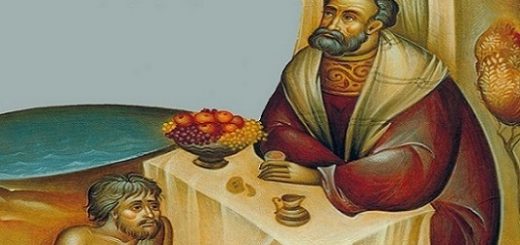What is Truth?

‘“Jesus answered, ‘You say rightly that I am a king. For this cause I was born, and for this cause I have come into the world, that I should bear witness to the truth. Everyone who is of the truth hears My voice.’ Pilate said to Him, ‘What is truth?’” (John 18:37-38).
One of the most insidious aspects of Postmodernism is the promotion of the thought that there is no such thing as objective truth. Postmodernism has dominated academia for over 50 years and has raised generations on the notion that truth is subjective. Everyone has their own truth. But a subjective truth is no truth at all. For anything to be true, it must first be objective. For example, that the Sun is hot is objectively true. It’s not just hot sometimes, in some places, or to some people. Regardless of your subjective relation to the Sun at any given time, it does not change the truth that the Sun is always burning and is therefore always objectively hot. In other words, truth is not altered by someone’s subjective perception of reality—the stars are always in the sky whether you can see them or not. Truth is constant and objective. If any supposed truth is missing either one of these two aspects it is not truth.
But Postmodernism didn’t invent the idea of subjective truth, it merely propagated it through academia. We can see this same reasoning in Pilate’s discussion with Jesus as he’s standing face-to-face with the Truth made flesh and yet still asks, “What is truth”? The Word of God is truth, and that truth became flesh, “And the Word became flesh and dwelt among us, and we beheld His glory, the glory as of the only begotten of the Father, full of grace and truth” (John 1:14). And again, “Sanctify them by Your truth. Your word is truth” (John 17:17). God’s Word is the objective standard for truth.
Satan, on the other hand, is the father of lies (John 8:44), and he loves the idea that truth is subjective. As a result of “personal truths” we now have the idea that you could hold to one truth, and I could hold to the complete opposite, and yet somehow miraculously each party still holds to the truth independently. This is why you hear people say things like, “that’s your truth.”
I just read an article about a mother celebrating her son’s coming out as transgender in which she was quoted as saying: “There was no rule book for what a mom is supposed to do when their child comes to them and says, ‘This is my truth’” (italics added). Well, for one, there is a rule book, she’s just never read it. Secondly, notice how she has adopted the false notion that this revelation on the part of her son is a personal truth. And because we can’t deny a truth, even if it’s subjectively based, we have to submit to it. In other words, when her son added the phrase, “This is my truth,” how could she deny it?
This is the agenda of the anti-Christ—to make truth subjective as a way of validating lies. Or rather, there is no such thing as a lie if all truth is subjective.
Pilate’s condition was no different from all unregenerate people; the truth is always right in front of them, but they cannot see it. Paul makes this argument in Romans 1:18-22:
“For the wrath of God is revealed from heaven against all ungodliness and unrighteousness of men, who suppress the truth in unrighteousness, because what may be known of God is manifest in them, for God has shown it to them. For since the creation of the world His invisible attributes are clearly seen, being understood by the things that are made, even His eternal power and Godhead, so that they are without excuse, because, although they knew God, they did not glorify Him as God, nor were thankful, but became futile in their thoughts, and their foolish hearts were darkened. Professing to be wise, they became fools…”
What is Paul saying here? Everyone knows the truth; yet most just suppress it in unrighteousness.
The more you align yourself with the truth (God’s Word) the less you’ll be a slave to sin.
“Satan is a liar, and we can only meet him with the truth. Satan prevails over ignorance by means of guile or deceit; but he has no power over those whose minds are regulated by the truth of God.”[1]
If Satan is the father of lies, knowing and obeying the truth will release you from the bondage of sin. The majority of the world is under his influence. Which is why the world is turned about by every lie and deceit; because they know not the truth.
This is what Jesus says in John 8:31-32:
“If you abide in My word, you are My disciples indeed. And you shall know the truth, and the truth shall make you free.”
Free from what? The toils, the power, and the deceptions of Satan.[2] The grip of sin will become lesser and lesser the more one abides in the Word. Why does this happen? Because you cannot serve two masters. You cannot hold to the truth while simultaneously believing it’s antithesis. You cannot espouse the truth and hold to the opposite lie. You will either hate the one and love the other, or else you will be loyal to the one and despise the other (Matt. 6:24).
Lastly, not all Christians understand the same truth. There are some people who claim to follow Christ and submit to His will and yet, according to their lifestyle, act as though there was no God at all. I think there are two possible reasons for this. One may be that they are simply self-deceived and are merely Christian by name, but they don’t have a regenerated heart, and therefore are not walking according to the truth. They believe in God the same way the demons do (James 2:19). The other reason may be due to a lack of performing the one duty described throughout this article: knowing the Word. Again, look at the words of John 17:17, “Sanctify them by Your truth. Your word is truth.” The process of sanctification is a lifelong process; and weening ourselves from lies also takes a long time. The less you abide in the Word, the less truth you will know. Therefore, one may be a Christian in the sense that they are looking to Christ for their justification, but they won’t be a very knowledgeable one without putting in the work of studying the Word.
[1] “The Christian’s Armour” by Arthur W. Pink http://www.chapellibrary.org/book/carm
[2] “The Christian’s Armour” by Arthur W. Pink http://www.chapellibrary.org/book/carm


